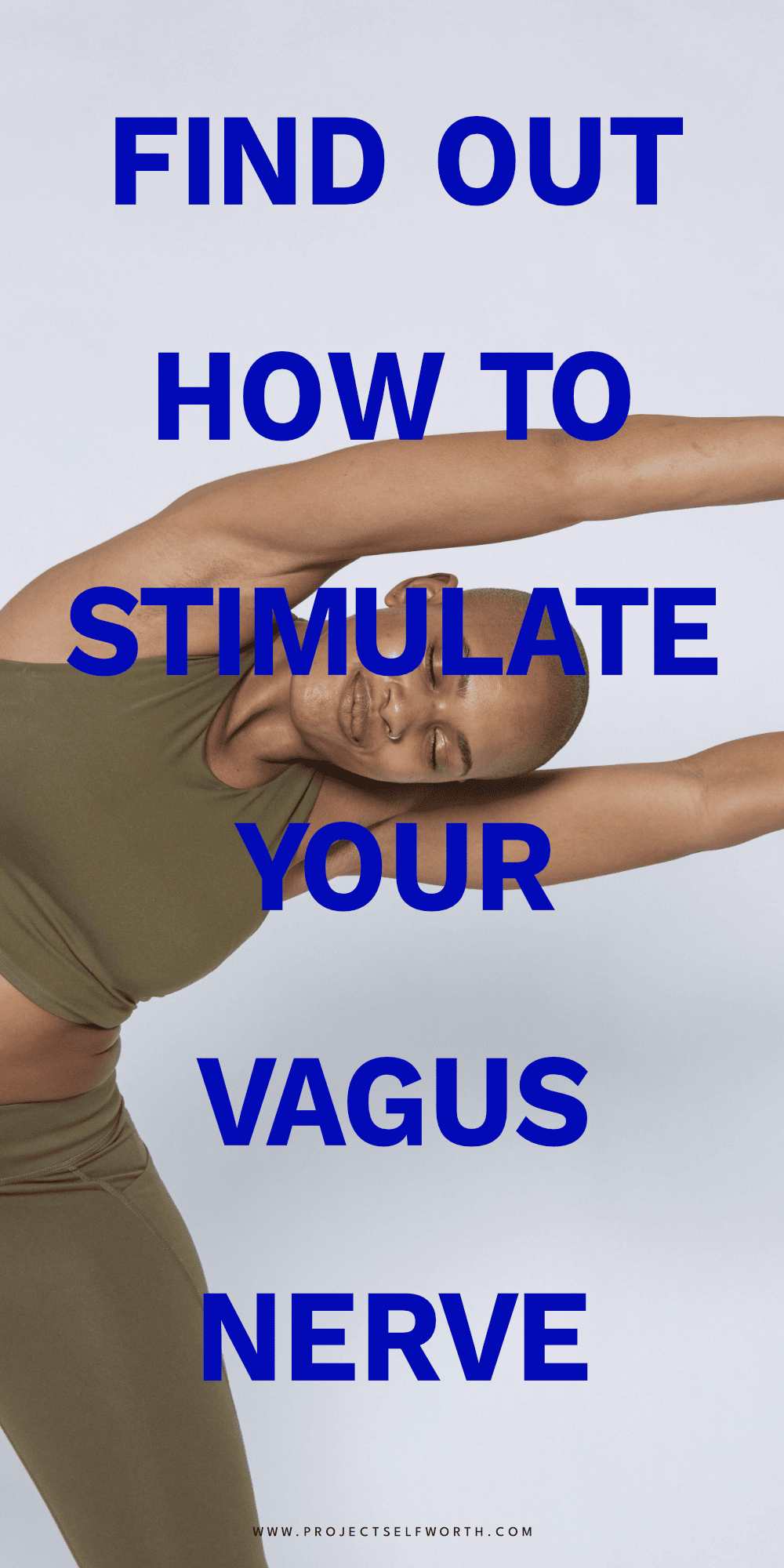How To Stimulate Your Vagus Nerve
Now that we’ve learned the basics about polyvagal theory, let’s focus on the vagus nerve.
The vagus nerve, sometimes referred to as the “wandering nerve” due to its extensive pathway throughout the body, plays a critical part of your nervous system. It helps to regulate everything from your heart rate and digestion to your mood and stress response.
When your vagus nerve is functioning optimally, it helps your body stay in a relaxed state. But chronic stress, poor lifestyle choices, and certain health conditions can weaken its function.
The vagus nerve also helps you to move through nervous system regulation, from your normal rest-and-digest state into Fight, Flight, or Freeze, and back out again. So if you’re having problems with this (either getting stuck inside one of the activations or looping in but not completing a state) then your vagus nerve might be to blame.
But this isn’t all gloom and doom! You can strengthen your vagus nerve, just like almost anything else in your body. There are a number of things you can do to regulate your vagus nerve and promote overall well-being.
In this post, we’ll explore how to regulate your vagus nerve through simple yet effective practices:
8 Ways To Stimulate You Vagus Nerve
1. Breathwork
If you’ve ever had someone try to help you feel better by saying “just breathe”, I feel you. Breathing might seem too obvious or simple to work. But it does. So try not to roll your eyes too hard and just give it a chance.
One way it does that is by stimulating the vagus nerve. The act of holding a breath calms down your vagus nerve and helps you to get back to regulation.
My favorite breathing technique is Box Breathing: inhale for 4 seconds, hold for 4, exhale for 4, and hold for 4. Then you just repeat that for a minute (or longer).
I love it not only because it works but it’s easy to do anytime, anywhere! Some breathwork really takes concentration and energy, but this is the perfect technique to have in your pocket to use while you’re on the go.
2. Humming
Humming as a way to feel better? Sounds a bit wacky but t’s true!
The vagus nerve can be stimulated by the nerves in your throat. Humming is the perfect way to do that. But it’s not just humming. Singing and gargling also have the power to stimulate the vagus nerve.
Here’s how to try it out: the next time you find yourself going into fight or flight, start humming. Keep it up for a few minutes to get that regulation happening.
Since learning this I’ve noticed that many people do this naturally as a way to self-soothe.
3. Cold Exposure
Wim Hof is a bit of a nut in some regards. But he’s right on about cold water exposure! Putting cold water on your body definitely stimulates the vagus nerve and helps you get back into ventral vagal by slowing down your heart rate/
Rest assured, that doesn’t mean you have to jump into a cold lake or icy plunge pool every morning! You can get the same benefits by splashing cold water on your face or neck.
Some other ideas for cold water therapy for vagus nerve stimulation:
- Taking a cold shower (one minute or longer!)
- Putting an ice pack on your neck
- Book a cyrotherapy session
- Dunking your face in a bowl of ice water
4. Mind-Body Connection
It should come as no surprise that mind-body practices like mindfulness, meditation, and yoga also help calm down your vagus nerve. These practices combine other methods like deep breathing and stretching to help ground you and remind your body that it’s actually safe.
5. Social Connection
You never need an excuse to hang out with your friends. But this is a good one! Social connection is another way of strengthening your vagus nerve.
Feeling seen and supported is a great way to “remind” our vagus nerve that it doesn’t need to panic. Social connection just works by itself, even if you don’t bring up all the reasons you’re feeling dysregulated. Meaning: you don’t have to ask for help. Just being around good friends is enough.
Bonus points if you combine this with also going for a walk or having a good laugh together. (See tip #8!)
6. Exercise
Moving your body in a gentle way is another great way to make yourself feel regulated. Think: walking, yoga, gentle cardio or even full-on cardio, if you’re up for it.
The magic here happens in a few different ways: faster breathing or actual stretching of your body. If you’re in fight or flight mode, doing something strenuous can make you feel like you “conquered” a threat.
If you’re in the middle of a freeze state, going for a walk might seem like the last thing you want to do. But if you can force yourself to do something, even just for five minutes, you’re already putting your body on the track to feeling betterl.
7. Massage
Massage is a fantasic way to stimulate the vagus nerve and make you feel calm again. However, that doesn’t mean you have to book a session with your favorite masseuse. Massage works even if you DIY it. Give yourself a gentle face, neck, or foot massage. You can also stimulate the vagus nerve by pressing on your solar plexus. This definitely works, although I wouldn’t call it a massage per se.
8. Laughter
It’s true: laughter really is the best medicine! Not only is it just enjoyable but it also has the benefit of toning your vagus nerve. So watch some standup or a good comedy. Or call that friend who always makes you laugh. It doesn’t matter how you make yourself laugh so just give yourself permission and go do it.
So tell me: what did you learn about the vagus nerve today? Which technique are you going to try out first?
Final Thoughts
By incorporating these practices into your daily routine, you can take charge of your vagus nerve health and unlock a range of benefits, including reduced stress, improved digestion, better sleep, and a calmer, more balanced mood.
Remember, consistency is key! The more you engage in these practices, the stronger your vagus nerve will become, allowing you to better navigate life’s stresses and cultivate a sense of inner peace.
Additionally, consulting with a healthcare professional can be helpful if you have any underlying health conditions or concerns. They can provide personalized guidance to help you regulate your vagus nerve and optimize your overall health.

Love This Post? Then Save It To Pinterest!








